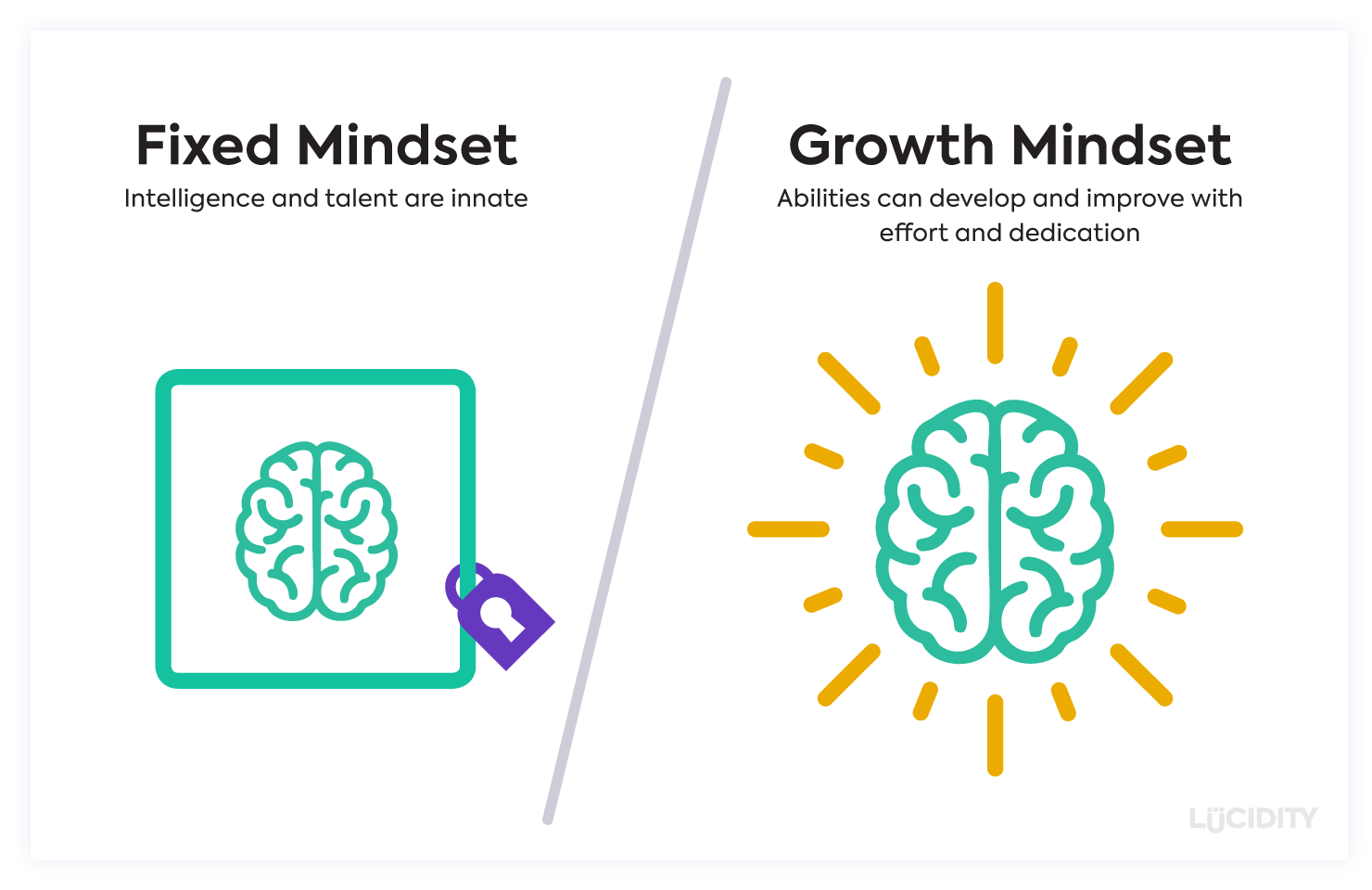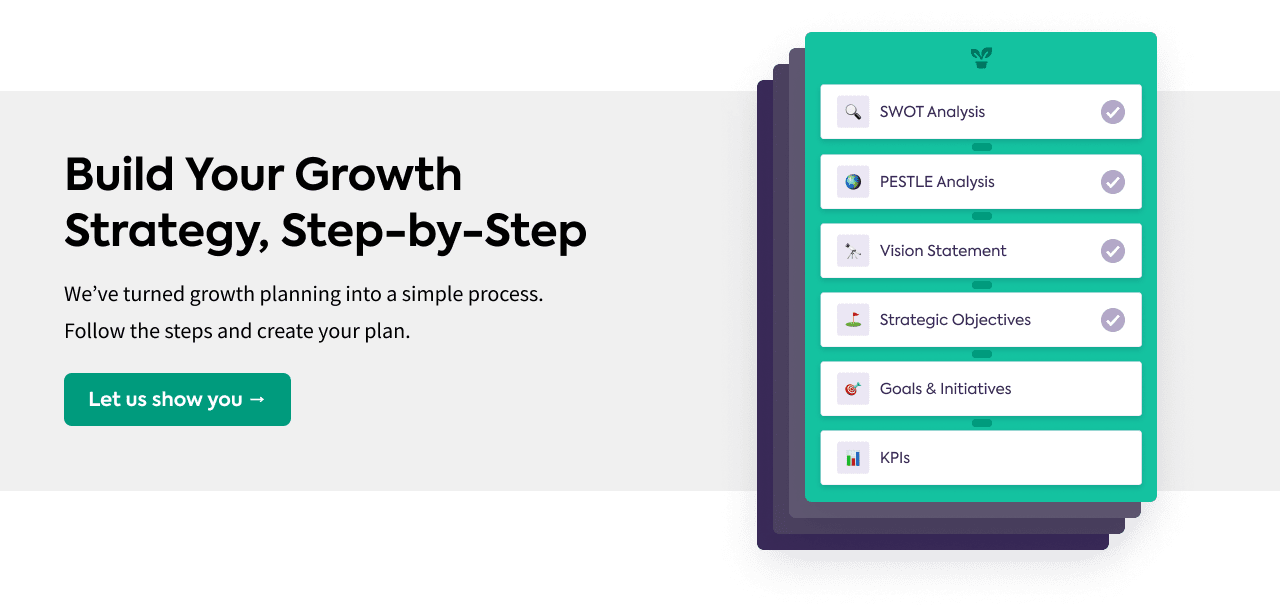With so many industries and businesses facing digital disruption and the onslaught of new technologies, alongside ongoing changes in consumer behavior and shifting expectations, innovation and transformation has never been more important.
So, how do you craft teams and team members who can respond to that challenge and keep your business moving forward, progressing, innovating and growing. How can you yourself have the right outlook and behaviors to lead by example and demonstrate what’s needed to succeed?
Developing and maintaining a Growth Mindset is arguably one of the most important professional development endeavors anyone in business can undertake. When you have successfully fostered a Growth Mindset you will always be striving to learn and develop and rarely be limited by self-doubt or blinded by arrogance.
What Is a Growth Mindset?
A Growth Mindset is a positive outlook and belief in the ability for anyone to learn, improve and grow in their capabilities. The flip side to the Growth Mindset is the Fixed Mindset where abilities are believed to be unchanging and inherent.
Growth Mindset – when you’re focused on learning more and getting better and are confident that you can do that with hard work and dedication.
Fixed Mindset – you believe talents are innate and you either have them or you don’t. People’s intelligence is intrinsic and that’s what drives their abilities and success.
Without getting heavily into neuroscience (because we’re not neuroscientists!), the science shows that brain plasticity is such that neurons can be altered and changed with repeated activity. So, the brain can be developed, new connections made, existing connections sped up, with practice and effort. And it’s an understanding of that and a commitment to train and develop your brain and abilities that is what we’d call having a ‘Growth Mindset’.
Where Did the Concept of a Growth Mindset Come From?
The terms Fixed Mindset and Growth Mindset where coined by Carol Dwec, Professor of Psychology at Stanford University and the author of Mindset: The New Psychology of Success.
Professor Dwec noticed that her students reacted differently to failure with some bouncing back relatively quickly and others experiencing it as a significant blow. This lead her to study the differences in their psychology and outlooks and led her to develop the concepts of Fixed and Growth Mindsets.
The Benefits of Having a Growth Mindset
- You’re not fazed by setbacks and don’t waste time being demotivated
- You face challenges in a positive way leading to less stress
- You don’t let criticism demotivate you
- You don’t beat yourself up when you fail
- You don’t limit yourself and put mental barriers up that tell you you can’t do something
- You don’t get cocky and complacent thinking your success is down to your natural talent
- You’re less likely to give up
- You’re happier!
It’s important to remember, that it’s rare for even the most ‘Growth’ amongst us to have a Growth Mindset all the time. So, don’t worry if you don’t feel like you’re 100% Growth in your outlook at all times. In fact, beating yourself up about that would be very un-Growth Mindset.
People can be open and collaborative and not fazed by criticism or setbacks for one particular area of their life, but absolutely Fixed for another. Or people might become more Fixed as they get older, or indeed more Growth as they get older. People might even be more Growth at different times of the day!
Luckily there are things you can do to help develop a Growth Mindset. That is, after all, the whole idea behind a Growth Mindset – believing that with learning and hard work you can develop, improve and achieve what you want to. Where better place to start those habits and behaviors than with the job of developing a Growth Mindset!?
Why is a Growth Mindset in Business So Important?
Research suggests that companies where a growth mindset permeates are more successful. These companies experience higher productivity from more motivated staff, with better collaboration and innovation. Everyone in the organization values hard work and appreciates and celebrates efforts to learn more, try things and develop and improve.
As opposed to companies where a Fixed Mindset is more prevalent, and competition is rife. Where people are afraid to appear unknowledgeable, unintelligent and not one of the naturally gifted. In these companies the atmosphere is less collaborative and almost combative.
How to Adopt a Growth Mindset in Business
- Ask for help when you need it – don’t assume you can do things alone and must have all the expertise yourself
- Try new things and ways of doing things – be open to different approaches and change
- Ask questions – always be curious
- Seek out feedback on your performance and work – proactively ask for critique in an effort to find areas for improvement
- Examine mistakes to help you learn and improve – don’t beat yourself up, but focus on what you’ve learnt and how that will help improve performance in future
- Do not get negatively preoccupied by the achievements of other people, benchmarking your success against them – just focus on your own growth and development and improving your abilities in relation to where they were now
- Work hard and put in the hours. Dedicate yourself and try as hard as you can, giving everything (or at least, most things) your full effort
An Exercise to Help Develop a Growth Mindset
Conduct a mindset audit. Go through all your daily jobs or areas of responsibility and put things under which mindset and approach you believe you have towards them – Growth, Fixed, or possibly Mixed.
Now look at the list of things you have a Fixed Mindset about. Ask yourself the following questions for each of those and note down your answers.
- Why don’t I think I’m good at this task?
- What abilities do I need to develop in order to be more successful at this?
- What learning resources are there to help me develop this skill or understand this job better?
- Who can I ask for feedback on my performance to date in this area?
- Did I work as hard as possible on this task or could I have been more dedicated?
- What alternative ways of undertaking this task are there?
- Who could I ask for help?
Once you have a list of answers to the questions, you’ll have created an action plan for growth.
How to Encourage a Growth Mindset Across Your Business
So, if businesses with cultures that encourage and promote growth mindsets are happier, more productive, innovative and ultimately successful, how do you get a slice of that action? As a leader, what do you need to do to help as many of your people as possible develop this growth mindset?
Here are the most important things you can do as a business leader to create a culture that promotes growth mindsets.
- Establish a proper process for bringing ideas forward and communicate it well throughout the business
- Give your people license and flexibility to try new things – maybe communicate a round-up of ‘experiments’ from across the business and share them
- Allow mistakes without negative repercussions, but encourage analysis and celebrate the learnings
- Avoid setting teams or departments against each other in competition, but instead encourage cross-functional collaboration and think of formal ways to foster that
- Have excellent L&D polices and budgets (putting your money where your mouth is) so all employees have access to development, training, coaching, whatever they want and need to progress
- Consider a mentor scheme where people from across the business can opt in to either be a mentor or a mentee and pair people up cross-functionally
- Reward effort, hard work and dedication over ‘intelligence’ and ‘genius’ – this will often come down to the language you use during any Reward & Recognition initiatives
- Put all your managers through growth mindset training! They need to believe it to promote it and live it, praise it and celebrate it with their team members
- Tell everyone about the growth mindset exercise outlined above and get everyone to put aside an hour or two to go through that task
Final Words…
Having a culture across the business where Growth Mindsets are developed and encouraged will have a significant impact on your strategic success. Strategy often involves change, transformation and innovation and a company where teams are collaborative, experimental, analytical and thirsty for knowledge are going to find the journey from strategy planning to execution far smoother, probably more enjoyable and certainly more successful.













